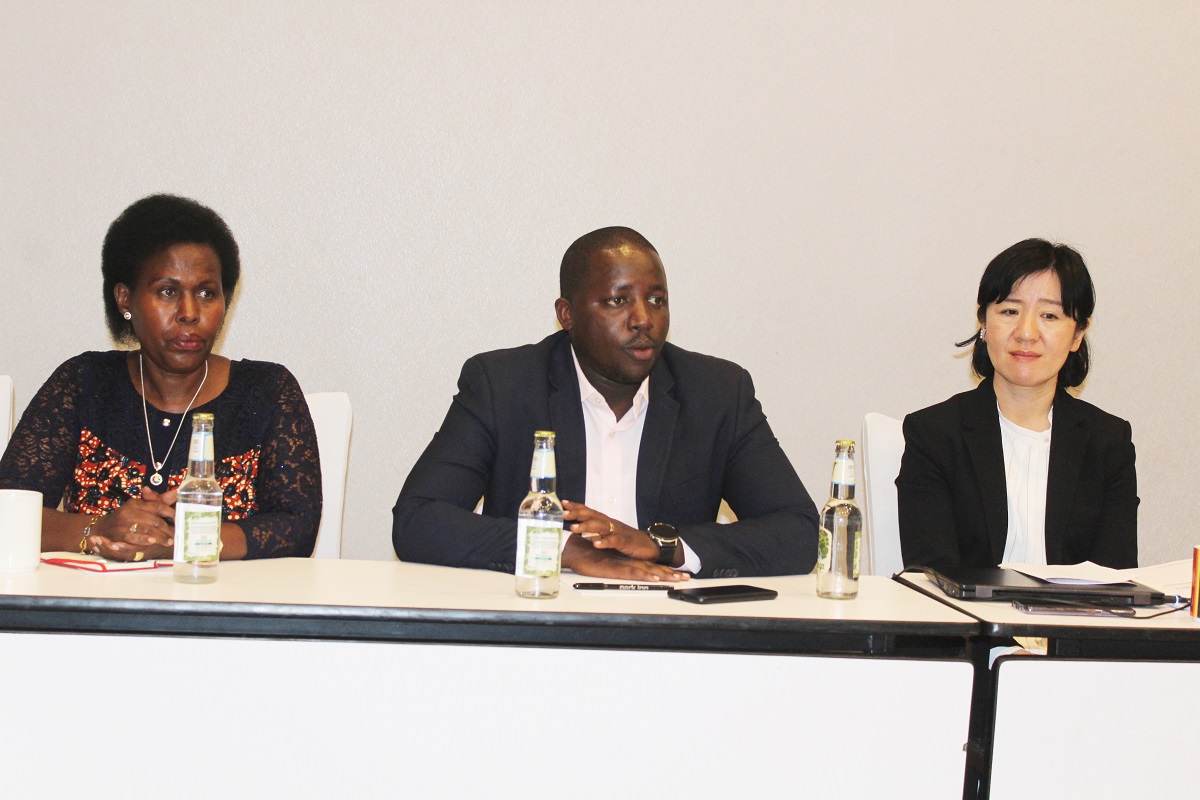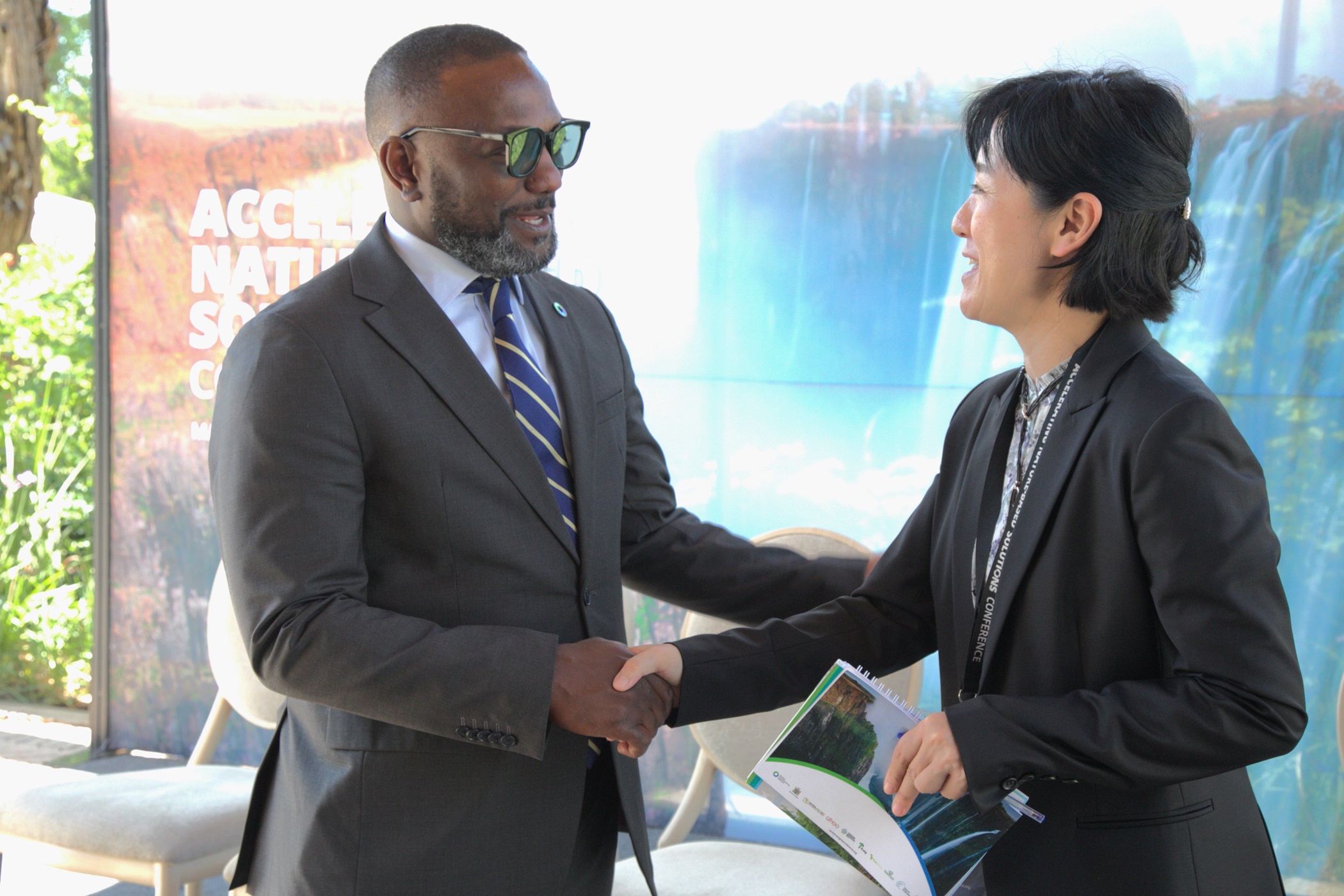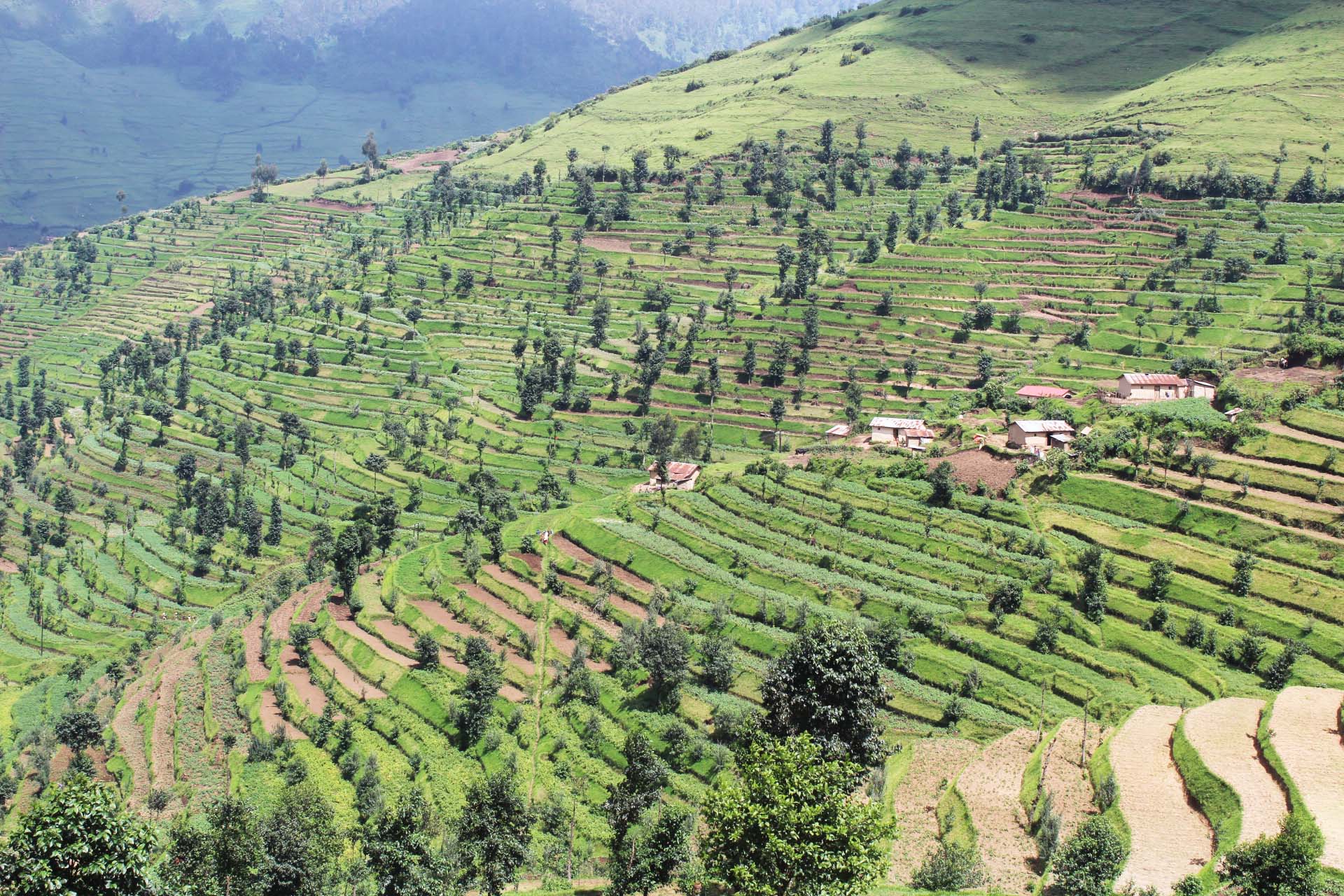IUCN Rwanda hosted the 15th National Forest Landscape Restoration Cross-Sectoral Task Force Meeting
The Government of Rwanda continues its efforts to protect forests, enhance biodiversity, and transform the livelihoods of Rwandans.
Forest Landscape Restoration (FLR) is a process for designing and implementing landscape-level interventions to restore ecological functionality and enhance human well-being across degraded and deforested land. The achievements of FLR require the efforts from various stakeholders and actors.
In Rwanda, there are many ecosystem restoration initiatives which are driving positive changes in many parts of the country.
The participants of the national workshop on FLR that was held at Serena Hotel in Kigali, Rwanda in 2016, recommended to create a national platform which will gather all key stakeholders and actors who are implementing forest related restoration projects. Subsequently, the National Forest Landscape Restoration Cross-Sectoral Task Force (CSTF) was created.
The main objective of CSTF is to facilitate coordinated action for forest and landscape restoration and sustainable food and agriculture in Rwanda. Since then, the platform has been holding annual and bi-annual meetings to deliberate on key national FLR approaches, challenges and opportunities.
The CSTF is made up of Government authorities and institutions, Universities, Academia, Local NGOs, Women, Youth, Faith-based Organizations, Researchers, Private Sectors and Development Partners.
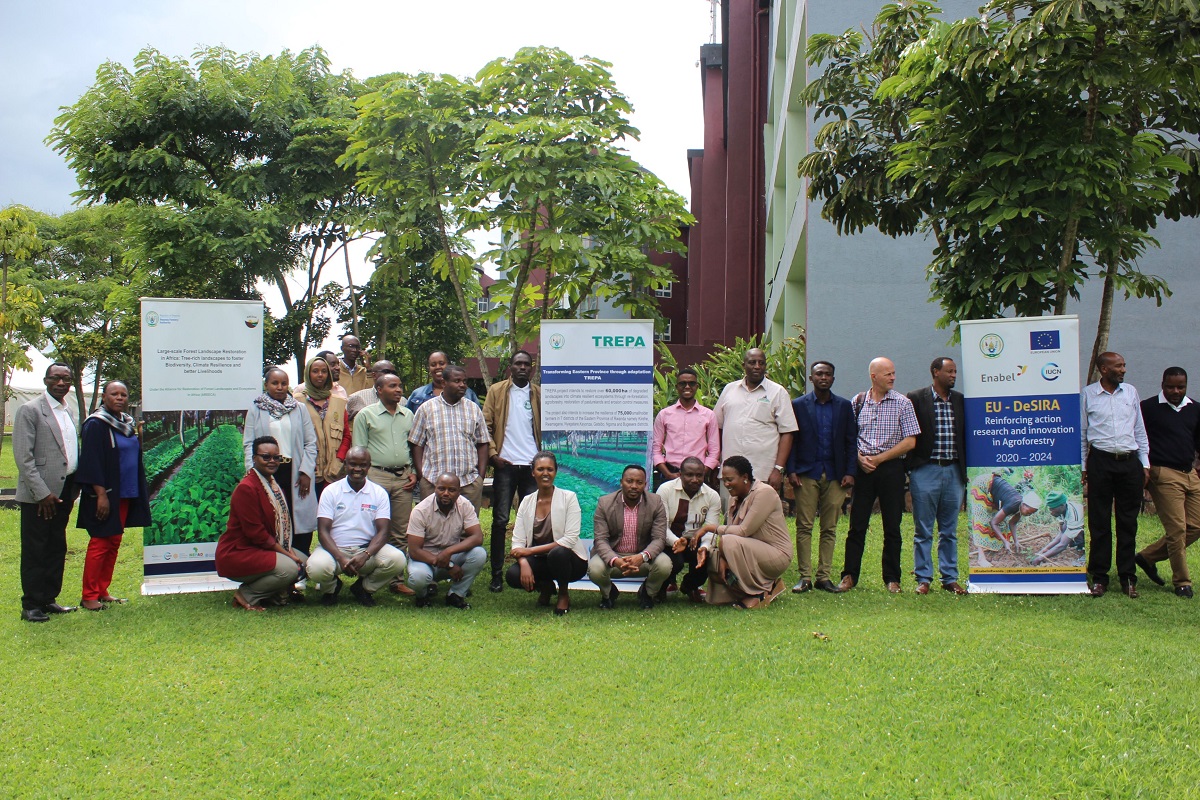 Photo: The National Forest Landscape Restoration Cross-Sectoral Task Force (CSTF) meeting was co-financed by TREPA project
Photo: The National Forest Landscape Restoration Cross-Sectoral Task Force (CSTF) meeting was co-financed by TREPA project
While officiating the 15th National FLR CSTF Meeting, the IUCN Rwanda Country Programme Manager, Albert Schenk congratulated the FLR task force members for their strong ongoing commitments, efforts, achievements that benefit both people and nature. “On behalf of IUCN, I wish to welcome you to the 15th Cross-Sectoral Task Force meeting on Forest Landscape Restoration and Sustainable Agriculture, here today and tomorrow in La Palisse Hotel in Nyamata/Bugesera from 13th to 14th December 2022”, said Albert. “The Cross-sectoral Task Force was created in 2016 to spearhead Rwanda’s response to the Bonn Challenge on forest and landscape restoration. The CSTF brings together a broad group of experts and stakeholders to coordinate and focus their efforts on FLR, to exchange technical information and best-practices, to ensure national forest landscape restoration monitoring, and to seek collaboration and synergy where and when possible”, Albert added during his opening remarks.
Albert thanked the German Government through its Ministry of the Environment, Nature Conservation and Nuclear Safety and its Embassy in Rwanda for enabling and funding the 15th National Forest Landscape Restoration Cross- Sectoral Task Force meeting as part of the Large-scale Forest Landscape Restoration project, commonly knowns as AREECA.
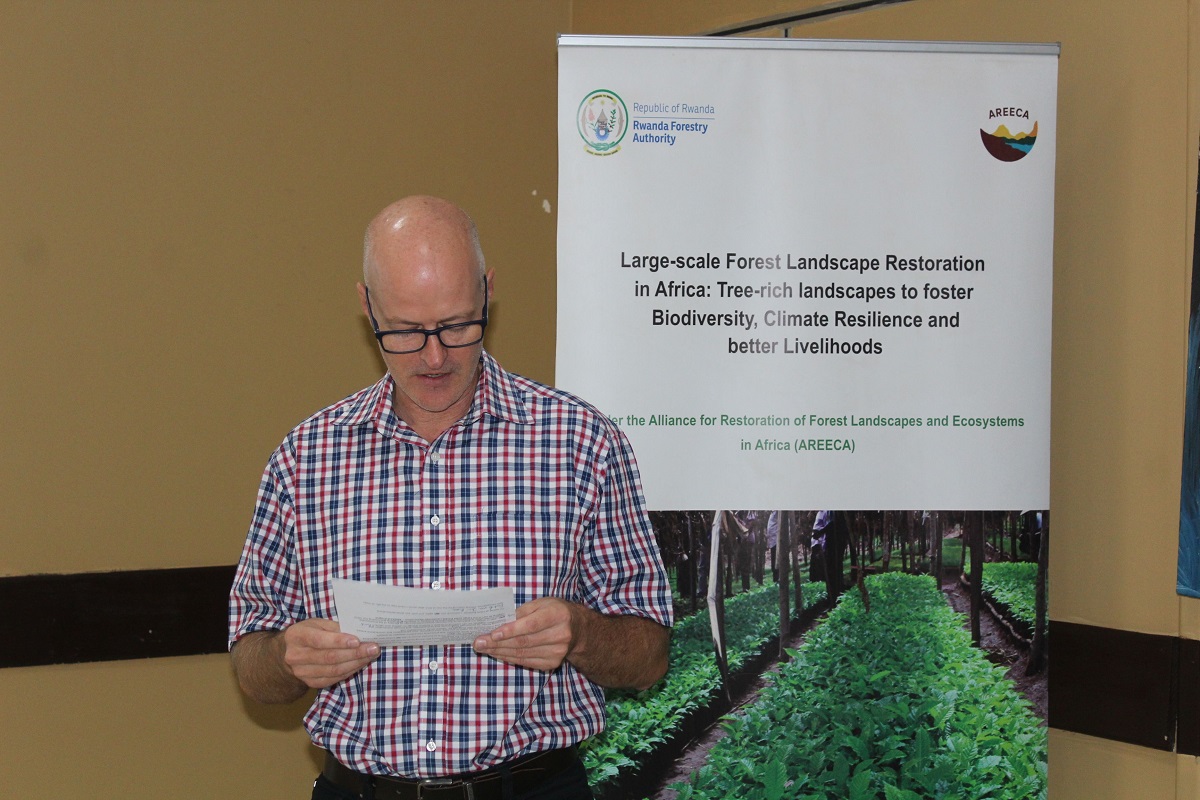 Photo: Albert Schenk congratulated the FLR task force members for their strong ongoing commitments, efforts, achievements that benefit both people and nature
Photo: Albert Schenk congratulated the FLR task force members for their strong ongoing commitments, efforts, achievements that benefit both people and nature
The overall objective of the 15th National Forest Landscape Restoration Cross- Sectoral Task Force meeting is to share experiences, discuss best ways to strongly and effectively implement FLR projects using innovative community-based approach, discuss arising technologies, tools and innovations, discuss various agroforestry monitoring systems and restoration monitoring in non-forested areas and agree on best system for Rwanda.
On behalf of Acting Director General of Rwanda Forestry Authority (RFA), Jean Pierre Rudatinya, the acting Division Manager of RFA Forestry Management Division appreciated the contributions of FLR task force members in making Rwanda green again.
“Currently Government of Rwanda in partnership with IUCN and other partners we are implementing different FLR projects in Rwanda, especially in Eastern Province due to its vulnerability to droughts. We do appreciate the following projects; Large-scale Forest Landscape Restoration (AREECA), Action Agroforestry Research project (DeSIRA), Transforming Eastern Province through Adaptation (TREPA), Reducing Vulnerability to Climate Change through Enhanced Community-based Biodiversity Conservation in the Eastern Province of Rwanda (COMBIO) and many more initiatives towards sustainable planet for people and nature”, Jean Pierre added.
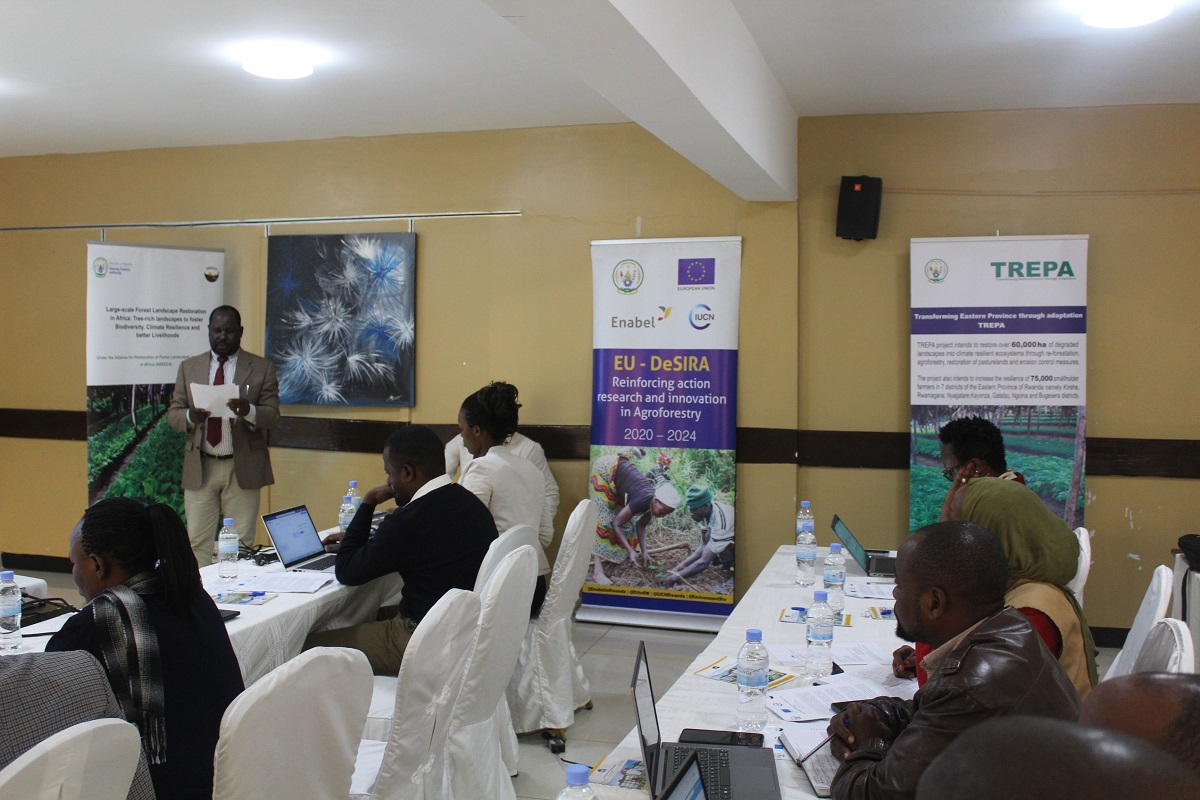 Photo: Jean Pierre Rudatinya, the acting Division Manager of RFA Forestry Management Division while delivering opening remarks to FLR task force members
Photo: Jean Pierre Rudatinya, the acting Division Manager of RFA Forestry Management Division while delivering opening remarks to FLR task force members
IUCN Rwanda Environmental Economics Specialist, Ephrem Imanirareba presented to the new members of CSTF the Restoration Barometer, the platform being used by governments to track the progress towards their national restoration targets.
“Restoration refers to ecosystem restoration, which is the process of restoring ecosystems that have been damaged, degraded or destroyed. When done properly, restoration can increase biodiversity, improve livelihoods, enhance food security, increase water availability and help mitigate climate change, among many other benefits”, Ephrem Imanirareba said in his presentation.
“Many countries have been undertaking restoration as part of their commitments to international goals such as the Bonn Challenge. By submitting data to the Barometer, countries are able to track the progress of their restoration targets in an easy, simple and streamlined way”, Ephrem narrated.
IUCN launched the sustainable agriculture project in Rwanda
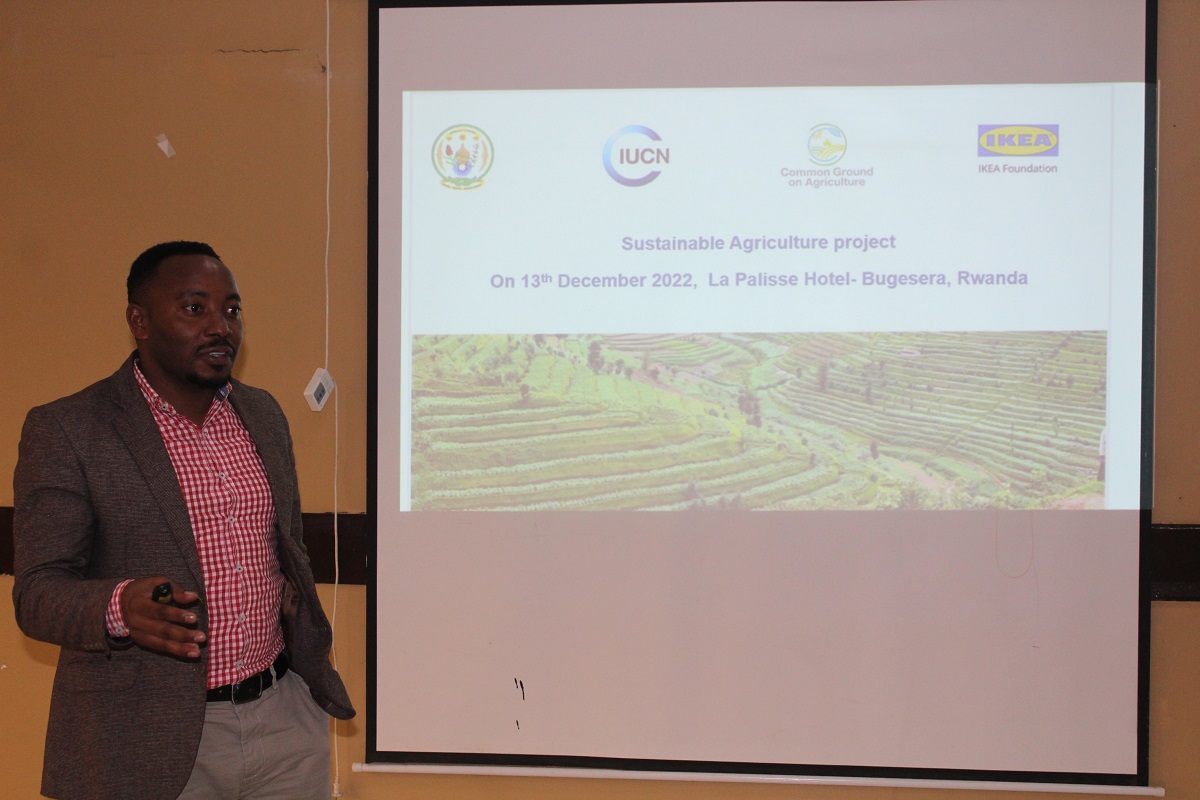 Photo: IUCN Rwanda Country Office launched the new project “Transition to Sustainable Agriculture” funded by IKEA Foundation
Photo: IUCN Rwanda Country Office launched the new project “Transition to Sustainable Agriculture” funded by IKEA Foundation
During the kick-off of the 15th Cross Sectoral Task Force meeting on Forest Landscape Restoration (FLR) and Sustainable Food and Agriculture (SFA) in Rwanda, the International Union for Conservation of Nature (IUCN) launched the new project “Transition to Sustainable Agriculture” funded by IKEA Foundation. The project will accelerate actions for mainstreaming land health in sustainable agriculture as a Nature based Solutions (NbS) for food and water security and climate change adaptation in Rwanda.
To accelerate the global transition to sustainable agriculture, IUCN has launched Agriculture and Land Health initiative in 2021 to speed up action for mainstreaming land health in sustainable agriculture, as a Nature-based Solution for food and water insecurity, climate change, and other societal challenges.
Through evidence-based dialogues between the agriculture and conservation sectors, IUCN aims to promote agroecological and regenerative approaches that restore and conserve biodiversity on farms and in agricultural landscapes. With the 15th National Forest Landscape Restoration Cross- Sectoral Task Force meeting, IUCN introduced to the CSTF members the new project that focuses on Sustainable Agriculture.
The IUCN Rwanda Country Office in partnership with Government of Rwanda and other partners has been implementing several FLR projects in Rwanda such as Alliance for Restoration of Forest Landscapes and Ecosystems in Africa (AREECA) which created green jobs to over 1,000 local communities, Embedding Integrated Water Resources Management in Rwanda project (EWMR), created green jobs to over 36,916 local communities and restored over 60,000 hectares of degraded lands.
The IUCN is also implementing Transforming Eastern Province through Adaption (TREPA) project which targets to create green job to over 75,000 local communities and 60,000 ha of degraded lands will be restored.
The 15th National Forest Landscape Restoration Cross-Sectoral Task Force Meeting convened on 13th-14th, December 2022 at La Palisse Hotel in Bugesera District, Eastern Province of Rwanda.
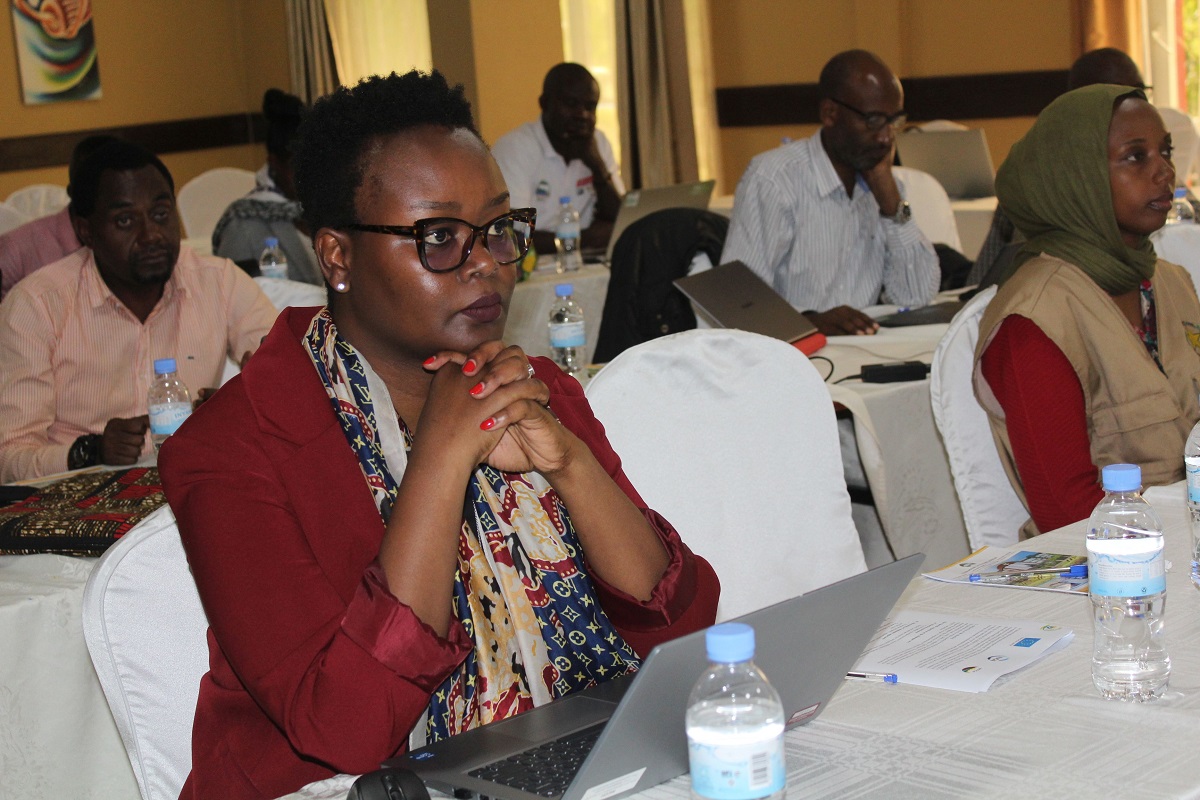 Photo: FLR task force members from Rwanda attended the meeting
Photo: FLR task force members from Rwanda attended the meeting
Disclaimer
Opinions expressed in posts featured on any Crossroads or other blogs and in related comments are those of the authors and do not necessarily reflect the opinions of IUCN or a consensus of its Member organisations.
IUCN moderates comments and reserves the right to remove posts that are deemed inappropriate, commercial in nature or unrelated to blog posts.
